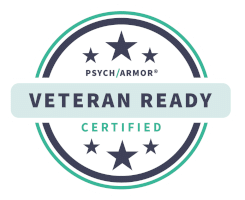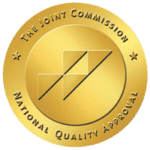Schizophrenia is one of the most widely misunderstood mental health conditions. Exaggerated and inaccurate media depictions and representations have left the general public with false (and often harmful) assumptions about people who live with this disorder.
Although it affects roughly 0.25% of the population in the US, schizophrenia impacts a diverse group of people (1), often in different ways than what we’ve seen portrayed on TV and in movies.
Reducing the stigma surrounding this disorder starts by debunking myths and understanding the facts about symptoms, causes, and treatments.
What is Schizophrenia?
Schizophrenia is a mental health disorder characterized by disrupted thought patterns, emotional dysregulation, distorted perceptions of the world, and complications with social interaction. It is a chronic and sometimes disabling condition that can fluctuate in severity, sometimes causing relatively few symptoms and other times causing debilitating psychotic episodes that cause marked changes in behavior.
The hallmarks of schizophrenia are symptoms like hallucinations, delusions, and disorganized thinking. Without proper treatment, people with schizophrenia can experience severe impairment in their daily lives; many attempt to self-medicate with drugs or alcohol to find relief from their symptoms.
While there is no cure for schizophrenia, the right support and treatment can enable people with this diagnosis to live happy, healthy, and fulfilling lives.
Symptoms of Schizophrenia
Schizophrenia symptoms differ from person to person but are divided into three main categories: psychotic, negative, and cognitive.
Psychotic Symptoms
Positive or psychotic symptoms cause extreme distortions or exaggerations in a person’s thought processes, behaviors, and perceptions of the world. When a person with schizophrenia experiences psychotic symptoms, it is known as schizophrenic psychosis.
Psychosis is one of the key symptoms of schizophrenia, but a person can experience psychosis without a schizophrenia diagnosis. Other conditions associated with psychosis include bipolar disorder, major depressive disorder, Alzheimer’s disease, and substance use disorders.
Symptoms of psychosis include:
- Hallucinations: Seeing, hearing, feeling, smelling, or tasting things that are not there, e.g. hearing voices.
- Delusions: Unshakeable false beliefs based on a distorted perception of reality; these beliefs are maintained despite clear evidence to the contrary. Examples include: believing you are being followed, spied on, or poisoned, believing you are famous, or believing people on television are sending you subliminal messages
- Thought disorder: Experiencing illogical thought patterns and having difficulty organizing both thoughts and speech, e.g. stopping in the middle of an idea or rapidly switching from one topic to another during conversation
- Movement disorder: Exhibiting abnormal or erratic body movements, e.g. irregular or jerky movements, muscle spasms, or repetitive movements like pacing, rocking, or crossing and uncrossing the legs
Negative Symptoms
When a normal behavior, characteristic, or ability is absent in a person with schizophrenia, it’s known as a negative symptom.
Negative symptoms of schizophrenia include:
- Lack of motivation: Inability to complete daily tasks like grocery shopping, personal hygiene, or housekeeping
- Lack of interest: Inability to get pleasure or enjoyment from once-loved activities
- Flattened affect: Lack of facial and emotional expression, including tone of voice, gestures, and body language
- Decreased verbal output and expressiveness: Rarely speaking and using few words while speaking
- Asociality: Withdrawal from relationships and social interactions
Cognitive Symptoms
Cognitive symptoms of schizophrenia include issues with attention span, concentration, language, executive function, and memory.
Cognitive symptoms include:
- Difficulty learning new information
- Difficulty receiving, processing, and responding to information
- Problems with working memory, e.g. difficulty following instructions
- Difficulty focusing or maintaining attention
- Problems with reasoning and problem-solving
- Decreased social cognition, i.e. difficulty recognizing others’ emotions, inferring others’ thoughts, and reacting emotionally
Dispelling Myths About Schizophrenia
Media and pop-culture representations of schizophrenia are frequently inaccurate and can spread harmful misinformation about the condition, the symptoms it causes, and the people who are diagnosed with it. Here are five things about schizophrenia that many people don’t know.
1. Schizophrenia is not a “split personality”.
Schizophrenia has long been associated with dissociative identity disorder (DID), sometimes referred to as split personality disorder or multiple personality disorder. In truth, schizophrenia and DID are two separate conditions with unique sets of symptoms. DID occurs when someone alternates between two or more identities (called “alters”), each with distinct characteristics and personalities.
In contrast, schizophrenia involves auditory and visual hallucinations, altered perception, and distorted thought patterns, but it does not cause personality changes. Although many of these symptoms appear similar, schizophrenia and dissociative identity disorder are not the same.
2. People with schizophrenia are not inherently dangerous or violent.
One study published in 2012 analyzed movies portraying schizophrenic characters and found that 83% of those characters displayed violent or homicidal behavior (4). In reality, the vast majority of people with schizophrenia never engage in violence.
3. Schizophrenia symptoms emerge early in life.
The symptoms of schizophrenia typically appear in late adolescence or early adulthood, with most people experiencing symptom onset between the ages of 18-25.
People who are assigned male at birth (AMAB) are more likely to be diagnosed with schizophrenia than people assigned female at birth (AFAB). Still, AFAB individuals are more likely to be diagnosed later in life.
4. Schizophrenia is highly comorbid with other disorders.
People with schizophrenia are at greater risk of developing co-occurring physical and mental health disorders. They are more likely to be diagnosed with substance use disorder, depression, anxiety, and post-traumatic stress disorder than people without schizophrenia.
5. While there is no cure, treatment for schizophrenia can help manage symptoms.
There is no known cure for schizophrenia, but the proper treatment can help individuals manage their symptoms and live relatively normal lives. Treatment approaches for schizophrenia include antipsychotic medications as well as psychotherapy (also known as talk therapy). Cognitive behavioral therapy, behavioral skills training, and cognitive remediation interventions can be effective in the treatment of schizophrenia.
Treatment Programs for Schizophrenia
Mental health treatment programs like those at Pasadena Villa recognize and address the complex clinical and personal needs of people living with schizophrenia. We provide dedicated treatment plans for individuals with schizophrenia and outline a path to symptom management and a return to a happy and fulfilling life.
If you or someone you love is struggling to manage the symptoms of schizophrenia, our clinical team is here to help. We will connect you with the treatment program and therapies that suit your unique needs and goals.
Call or submit an online contact form today, and our admissions specialists will happily answer any questions you might have.
References
- World Health Organization. (2022). Schizophrenia.
- National Institute of Mental Health. (2021) Schizophrenia.
- National Institute of Mental Health. (2022) Schizophrenia Statistics.
- Owen, Patricia R. “Portrayals of Schizophrenia by Entertainment Media: A Content Analysis of Contemporary Movies.” Psychiatric Services, vol. 63, no. 7, 1 July 2012, pp. 655–659, ps.psychiatryonline.org/doi/10.1176/appi.ps.201100371, https://doi.org/10.1176/appi.ps.201100371.





